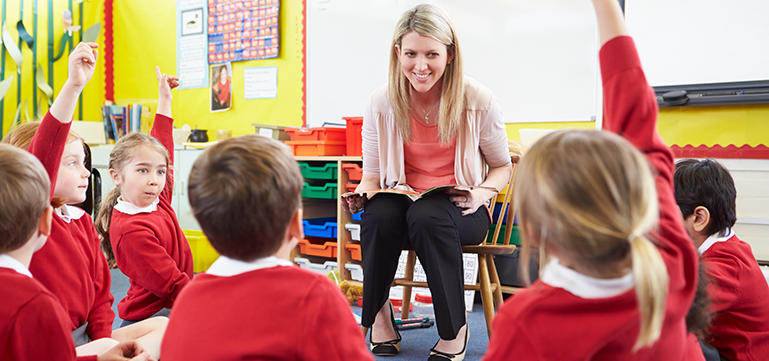Swansea Secondment Project

Quick links:
Information about the school
Dunvant is on the outskirts of Swansea. It serves an area that is neither prosperous nor economically disadvantaged. Approximately 9.5% of pupils are eligible to receive free school meals. There are 11 mainstream classes, including a nursery and two specialist teaching classes for children with moderate ASD.
Approximately 93% of pupils come from English-speaking homes and a very few pupils speak Welsh at home. The remaining pupils are from minority ethnic groups (88% white British, 12% other). Around 12% of mainstream pupils have additional learning needs and a very few have a statements.
A majority of the children are quiet and compliant on entry and very well mannered. Many children achieve at the expected level on entry with around half achieving beyond.
There are very positive working relationships between the pupils and their teachers and other staff. There is a vibrant and inclusive atmosphere at the school, which strives to ensure that teaching is engaging and well planned, and that lessons are fun and meet pupils’ needs effectively.
Context and background to the effective or innovative practice
Within Swansea as a whole, there is sometimes movement between schools in terms of leadership and promotion. The idea was discussed with a member of the senior leadership team and, following discussion with the appropriate HR professionals and Swansea school improvement advisory team, the plan was developed via the Leadership academy Innovation funding route. Expressions of interest were sought and eight schools signed up to the project.
Description of nature of strategy or activity
The idea of the project was to provide a framework whereby teachers from approved schools can apply for a one year secondment in another primary school.
The secondment would be for one year (to avoid disruption to the class), and would follow the normal secondment protocols as provided by human resource guidelines. As part of the secondment, the participant would be required to:
- Look at the approaches to the new curriculum being trialled/investigated in the partner school and share ideas from their own school
- Complete a piece of action research for the partner school on an area in their school development plan
- Participate in half termly ‘pit stops’ with local authority challenge advisers and other participants to share their learning and experience; these pit stops will also be opportunities for participants to engage with challenge advisers on key aspects on senior leadership
What impact has this work had on provision and learners’ standards?
When evaluated by both the participating headteachers and the secondees, the feedback was overwhelming positive, citing positive development in all areas of leadership, including curriculum, leading teams and developing knowledge of different settings.
I have been given opportunities that will serve me well in my leadership development. Finance Training, presenting at Core visits with challenge adviser, Lead practitioner Great Teaching Toolkit, honest and insightful conversations with headteachers about what they are looking for in a deputy headteacher.
The secondment experiment has been invaluable. My secondment was to a very different school, this meant I have experienced a school with a much larger staff, in a different catchment with many more pupils. I have had many opportunities through the year to lead whole school self development priorities linking to the new curriculum and universal provision through Key Stage 2.
I have been tasked with a range of opportunities to push my management ambitions which have included leading a new AoL (LLC) and improve the profile of Welsh through gaining the Bronze Siarter Iaith Award.
How have you shared your good practice?
The school has presented to Swansea Schools via headteacher meetings, to the National Middle Leaders conference and more recently, to its Partneriath link.